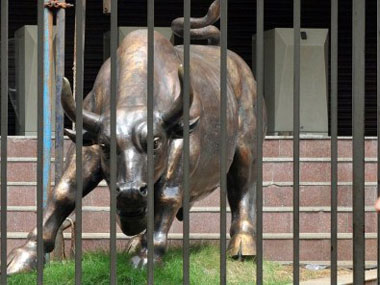The current market volatility is a reflection of what happened in the past, what is happening now and what might happen in the future. The future course of the market will depend on the current response to future events, and if, like the Charles Dickens character Ebenezer Scrooge in “A Christmas Carol,” economies can change their ways to the good, the future will be brighter than what markets are projecting it to be right now.
The ghost of the future does not paint a good picture - very similar to the ghost in the Dickens book. Economic growth is slowing, with downward revisions in growth across the globe. Morgan Stanley research cut global GDP forecast by 30 basis points (100 basis points equal 1 percent) for 2011 and by 70 basis points for 2012.
The fact that policy response to a downward trajectory in economic growth is extremely muted increases the potential for a further reduction in growth estimates. The policy response is muted because governments across the world do not have fiscal ammunition while central banks have limited policy options.
The sovereign debt issues facing countries from the US to Japan are leading to governments focusing on cutting down on fiscal deficits to bring about a balance in government finances. Central banks, including the US Federal Reserve (Fed), the Bank of Japan and the European Central Bank (ECB), are all running extremely loose policies where policy rates are at all-time lows or close to all-time lows and a further easing is not possible from these low policy rates.
[caption id=“attachment_64552” align=“alignleft” width=“380” caption=“From China to India, inflation is trending at multi-year highs and central banks in these countries have raised policy rates to counteract inflationary pressures. AFP”]
 [/caption]
[/caption]
Emerging market countries are facing price pressures, forcing central banks to tighten policy to bring down inflationary expectations. From China to India, inflation is trending at multi-year highs and central banks in these countries have raised policy rates to counteract inflationary pressures.
Governments in these countries are facing their own problems. China is facing property bubbles, local government debt and social unrest on the back of inflation running at higher levels. India is facing corruption scams and public unrest on corruption and inflation. India is also facing issues on poor government finances and the Centre is struggling to keep down its overall borrowing for calendar 2011-12 on the back of a rising subsidy bill.
The ghost of the future is telling us that weak economic growth coupled with the lack of policy tools to stem the downward growth tide will lead economies into deeper trouble. The markets are factoring in that prediction. Equity indices across the globe are down over 14 percent over the last four months, while commodities are down over 10 percent in the same period. Gold and bonds, seen as safe haven assets, have performed well with gold returning over 25 percent while the US 10-year treasury gave absolute returns of 8 percent over the last four months.
But it need not be as bad as projected by the ghost of the future. There are many positives in the scenario projected above. The first positive is that the debt levels of governments are likely to come down, strengthening government finances.
The second positive is inflation will come off on the back of weak demand, leading to lower borrowing costs globally. The third positive is that with inflation coming off, central banks in emerging markets can lower policy rates and become more accommodative to increase demand, which is latent.
The fourth positive is the corporate sector will have become leaner and meaner. And with lower cost of borrowing, it will start leveraging for future growth. The fifth positive is many governments will be forced into reforms which will come into play down the line.
Scrooge changed his ways for good; there is no reason why governments, central banks and corporates cannot do the same.
Arjun Parthasarathy is the Editor of www.investorsareidiots.com , a web site for investors.
Arjun Parthasarathy has spent 20 years in the financial markets, having worked with Indian and multinational organisations. His last job was as head of fixed income at a mutual fund. An MBA from the University of Hull, he has managed portfolios independently and is currently the editor of www.investorsareidiots.com </a>. The website is for investors who want to invest in the right financial products at the right time.
)